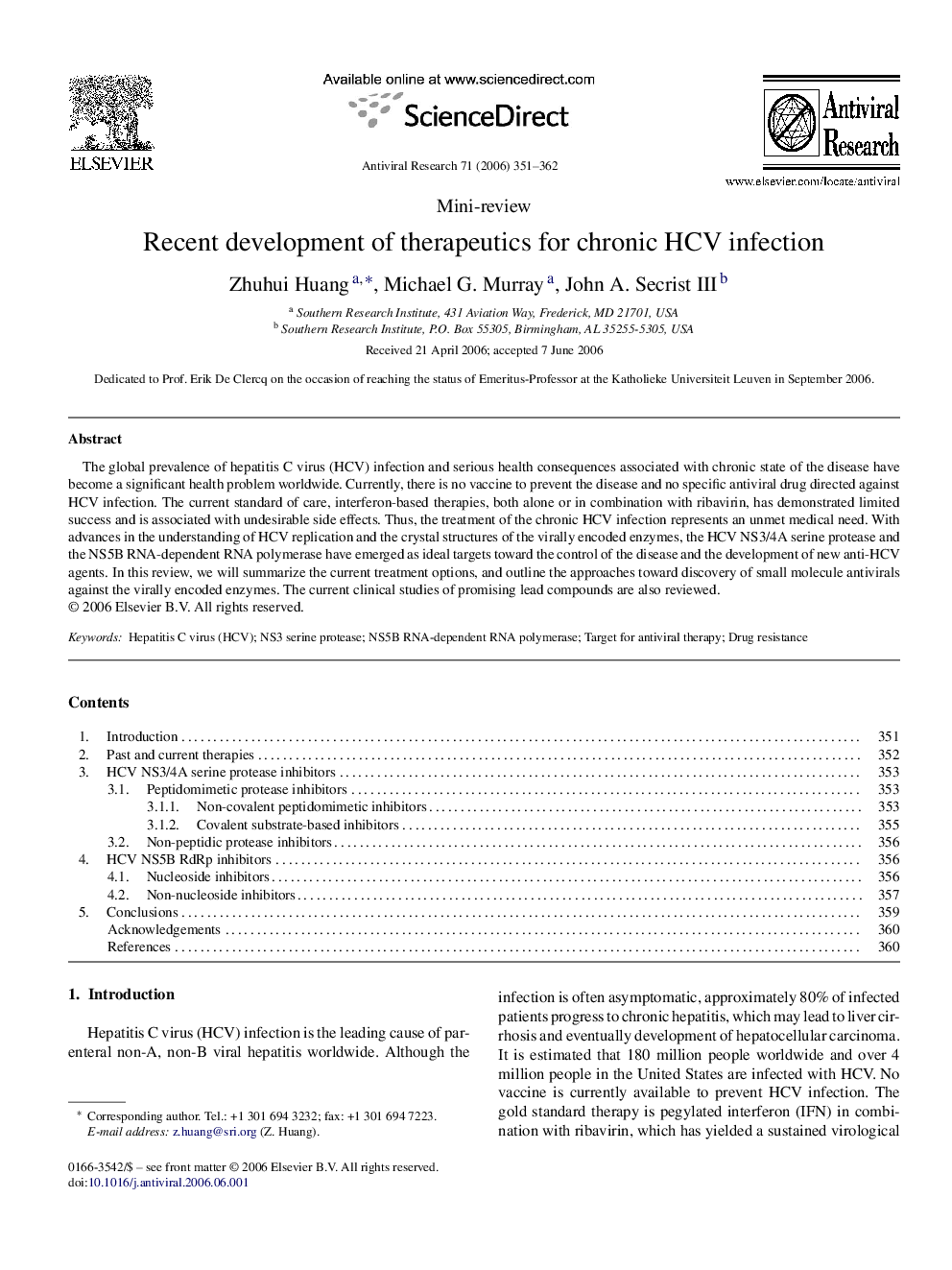| کد مقاله | کد نشریه | سال انتشار | مقاله انگلیسی | نسخه تمام متن |
|---|---|---|---|---|
| 2511566 | 1557846 | 2006 | 12 صفحه PDF | دانلود رایگان |

The global prevalence of hepatitis C virus (HCV) infection and serious health consequences associated with chronic state of the disease have become a significant health problem worldwide. Currently, there is no vaccine to prevent the disease and no specific antiviral drug directed against HCV infection. The current standard of care, interferon-based therapies, both alone or in combination with ribavirin, has demonstrated limited success and is associated with undesirable side effects. Thus, the treatment of the chronic HCV infection represents an unmet medical need. With advances in the understanding of HCV replication and the crystal structures of the virally encoded enzymes, the HCV NS3/4A serine protease and the NS5B RNA-dependent RNA polymerase have emerged as ideal targets toward the control of the disease and the development of new anti-HCV agents. In this review, we will summarize the current treatment options, and outline the approaches toward discovery of small molecule antivirals against the virally encoded enzymes. The current clinical studies of promising lead compounds are also reviewed.
Journal: Antiviral Research - Volume 71, Issues 2–3, September 2006, Pages 351–362